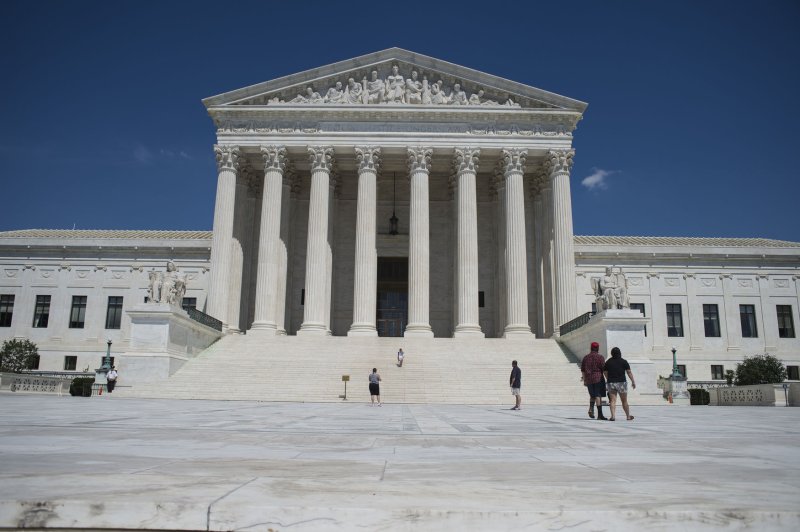The U.S. Supreme Court ruled Tuesday that patent law could not be used to prevent the resale of products. The ruling came in a case in which Lexmark International, Inc., maker of computer printers and ink cartridges, sought to stop refurbished and generally less expensive versions of its ink cartridges from entering the marketplace. Photo by Pete Marovich/UPI |
License Photo
May 31 (UPI) -- The Supreme Court ruled that companies give up patent rights after a product is sold in a case involving the refilling and resellng of printer ink cartridges.
The ruling Tuesday involved Lexmark International Inc., makers of computer printers and associated ink and toner cartridges. It sued Impression Products, a small West Virginia company which obtains empty Lexmark cartridges, then refurbishes and resells them at discounted prices. Lexmark argued Impressions Products was infringing on Lexmark patents.
Writing for the majority, Chief Justice John G. Roberts Jr. said Lexmark could not use patent law to enforce conditions it placed on the sale of its products.
"The purchaser and all subsequent owners are free to use or resell the product just like any other item of personal property, without fear of an infringement lawsuit," he wrote. Using a used car repair shop as an example, he added, "The business works because the shop can rest assured that, so long as those bringing in the cars own them, the shop is free to repair and resell those vehicles. That smooth flow of commerce would sputter if companies that make the thousands of parts that go into a vehicle could keep their patent rights after the first sale."
In essence, the court ruled that once buyers purchase a product, they can use them as they please unless other laws intervene. The ruling reduces a tool used by companies to control the marketplace; in the case of ink and toners cartridges, manufacturers typically sell printers at low prices and recover costs through sales of replacement cartridges. Some businesses in the biotechnology, pharmaceutical and agricultural industries supported Lexmark in the case, with medical supplies maker Medtronic Inc. arguing that reuse of some medical devices could endanger patients' health. Intel Inc. and Google Inc. joined auto parts resellers in supporting Impressions Products' side.
The Supreme Court ruling was unanimous except in the case of applying the patent law to sales outside the United States. Justice Ruth Bader Ginsburg dissented in a 7-1 decision, saying she would have allowed U.S. companies to retain patent rights on overseas sales.
The case was argued prior to Justice Neil Gorsuch joining the court. He did not take part in the case.















